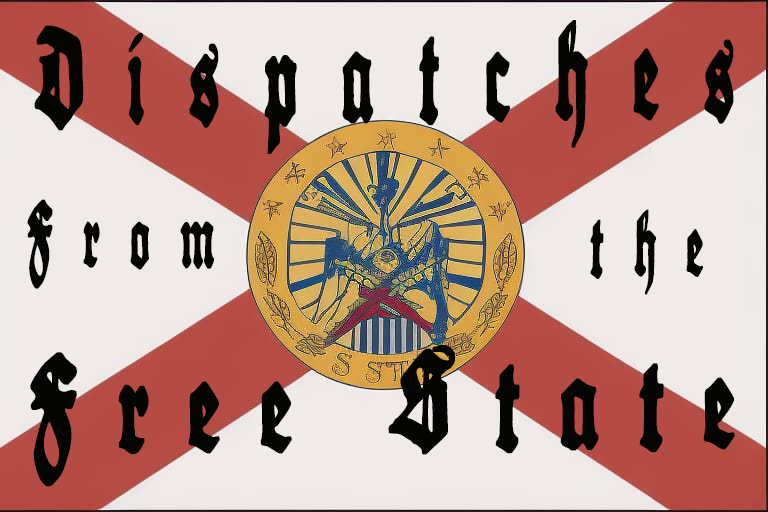If they demand capitalism, let them have capitalism
Many years ago I read a book by Ralph Nader, I can’t remember which one at this point. One story in the book stood out to me, however. In it, Nader recounts a conversation he had with his father when he was young. The father asked, and I’m paraphrasing, “why will capitalism always exist?” When young Ralph asked his father to explain, the answer was, “because they’ll always have socialism to bail it out.”
This was poignant to me as the Great Recession came to a head and our most conservative politicians, the ones advocating the most austere Laissez-Faire policies when it came to support for the poor, were elbowing each other to be the first to offer massive bailouts to the big banks. Remember, these were the same institutions that, through their arrogance, ignorance and avarice, caused the global collapse to begin with. Their selling point was that they were too big to fail. They had to be bailed out.
In the meantime, real people, real families who were not considered too big to fail, struggled. They were kicked out of their homes. They lost their jobs. They were downsized and deskilled. Many families lost everything and had to start from scratch. Many even today have yet to fully recover.
Now we are facing another recession. This one is a strange beast. Resulting from a pandemic virus that has destabilized our commodity chains, this recession carries an internal paradox. In most recessions, the goal is to get people into the workplace as quickly as possible. In this situation, however, the workplace is the last place we want people to be into the near future. So we can’t even begin to use normal means to resolve this coming recession until the quarantines are lifted.

The only solution is to build a sustainable social safety net and to provide direct assistance to individuals and to families. Under a Democratic President, of course, such a program would be derided as socialism. Now, with a Republican President(1), it’s interesting how, without a single note to the irony of it, Republicans are floating ideas pulled directly from AOC’s little book of dreams.
Last week, the United States Congress did something unusual. It passed a piece of legislation. Furthermore, thanks largely to Democratic influence and the fact that an unpopular Republican President is facing an election in a few months, this legislation included some half-hearted relief measures to working people. Namely, the legislation offers some Americans limited paid family medical leave, a benefit enjoyed by citizens of every advanced nation on Earth–except in the United States.
In the meantime, big corporations are lined up to receive their unrestricted socialism. Bailouts. Tax Cuts. Subsidies. Oh, my! And why not. In the 80’s they were bailed out. During the recession they were bailed out. Why should they expect anything less? Dodd-Frank? Come on! They are like cats who have been fed. They will now always come back when hungry.
“Yeah, but this is an unusual situation. Nobody could have reasonably foreseen a recession caused by a mutated virus.”
First, though it may be true that nobody could have foreseen a recession caused by a mutated virus, anyone and everyone with any sense could have predicted a coming recession. Recessions happen periodically. That’s Economics 101. Economies grow until something destabilizes them. Then they fall into recession. Since World War II and the advent of Keynes General Theory and the rise of the Bretton Woods Systems, recessions tend to happen every five to seven years or so. In fact, our current period of economic growth, slow as it has been, is one of the longest such periods in American history–about ten years!
This growth could not last forever. Most people with any background in economics(2) could see this coming. The first among us who should have seen it were big corporations. They literally hire the most knowledgeable economists in the world to see this stuff coming. So, either they hired some bad economists, or they ignored their economists, or they asked their economists to figure out alternative ways to weather the coming economic crisis–to which the economist almost certainly suggested lobbying the government for a bailout.
It’s not like there weren’t signs of trouble. The economy has been sluggish, even in the face of the government dumping about a trillion dollars of deficit spending into the market. The Federal Reserve has been lowering rates, despite the fact that they are already dangerously low after ten years of slow, shaky growth. The ratio between long and short term bond yields have been inverted for months now. This data is recognized by economists as an indicator of a coming recession. Finally stock prices have been steadily rising often based on inflated value…what some economists might define as a bubble.(3) Indications were there, and big corporations, with their massive incomes and wealth assets, were better positioned than any to prepare themselves for calamity.
Which brings us to the second point. If big corporations did not prepare themselves for a coming recession…oh, well. That’s capitalism for you. Corporations and their pundits and Congressional lap dogs are always the first to lecture the rest of us on the glories of capitalism. After all, capitalism encourages innovation and the mitigation of risk against benefits that maximizes outcomes for everyone.
Great! So go and mitigate your risks…using your own resources, not ours.
It’s not like there hasn’t been every opportunity to do just that. Corporations have been making record profits, especially since the corporate lap dogs have been the ones passing legislation and writing the executive orders. In 2017, Congress passed the Tax Cuts and Jobs Act under the premise that the resulting economic growth would more than pay for the decreased taxes. After all, with all that new revenue, companies would invest in more jobs and productive expansion. They didn’t. Instead, they invested in stock buybacks. This artificially inflated the value of stocks, but represented a nice payoff in the form of increased dividends to shareholders.
From years of windfall profit, in the face of an unusually long period of economic growth as well as other indications that the boom would end, one would think smart investors, with smart financial advisors, might just put some assets aside for a rainy day. Indeed, according to the Harvard Business Review, corporations are sitting on over $4 trillion in reserves. That’s almost the entire federal budget last fiscal year. Why do they need our money?
Some people refer to such bailouts as socialism for the rich. This is, of course, an ironic contradiction. The whole point of socialism is that everyone contributes and everyone benefits. Now that we are facing a pandemic, the benefits of everyone pitching in for the greater good is at a premium. We have an opportunity to push for long awaited benefits for everyone in our society, from paid leave, to universal health care to Basic Minimum Income. After all, these programs have bipartisan support–for now.
But we all know what happens when the corporate lap dogs get their way. They’ve already put us a trillion dollars into the red so they could heap rewards on their corporate constituents. It looks like they are willing to spend another trillion dollars of our money to get themselves re-elected in November. If this willingness to spend is wasted on corporate entities that neither need nor deserve the largess, you know what will happen when it comes time to talk about making paid leave permanent or demands for universal health care. Those politicians who are so ready to make it rain on their corporate masters will turn to us and say, “sorry, we can’t afford these programs you want. Look how high the deficit is. How are we going to pay for it?”
Imagine the world we would be living in if, instead of showering uncounted trillions on “toobigtofail” banks ten years ago, we used that money to refinance every mortgage in the country. Imagine if we then took the savings and invested that in paid leave, single-payer, education, infrastructure. We would be far better positioned, both systematically and with regard to leadership, to deal with this pandemic.
Real social investment equates to long term payoffs for everyone. We shouldn’t drop one thin dime (yes, the reference to Franklin Delano Roosevelt is intentional) on short-sited corporate bailouts.
Note: In response to some communications I’ve received. No, I haven’t forgotten about the DNA of Capitalism Project. The next installment, Part I Dehumanized Rationalism, is on its way.
- A Republican President of dubious competence, one might add.
- I teach Honors Economics. I’m nowhere near an expert, but I’ve been telling my students that they need to prepare. Boom times always and, and this one had been going a long time. I based that not on any economic model. I based that prediction on an understanding of history.
- That stock prices constituted a bubble is not a consensus among economists.






Leave a comment